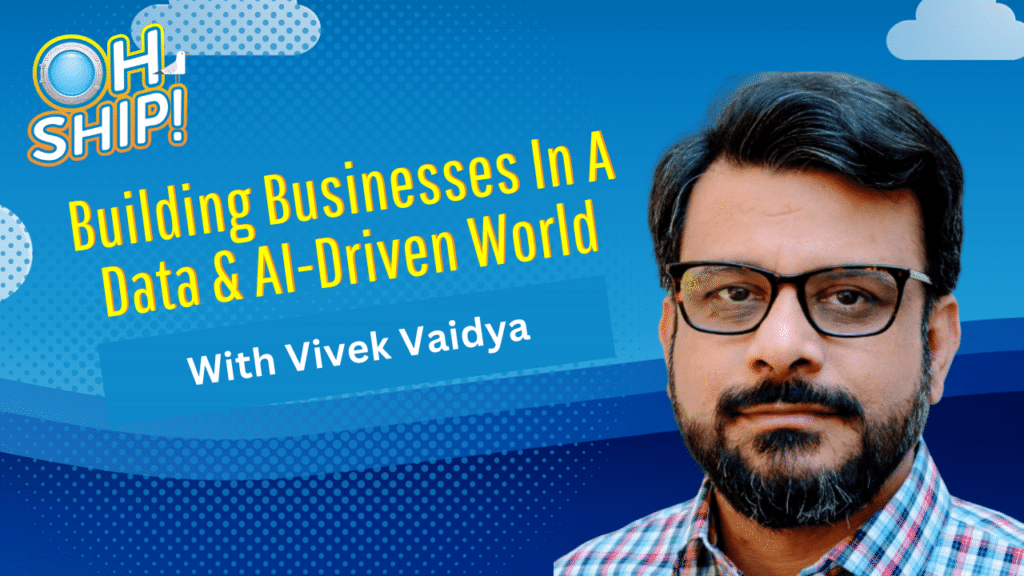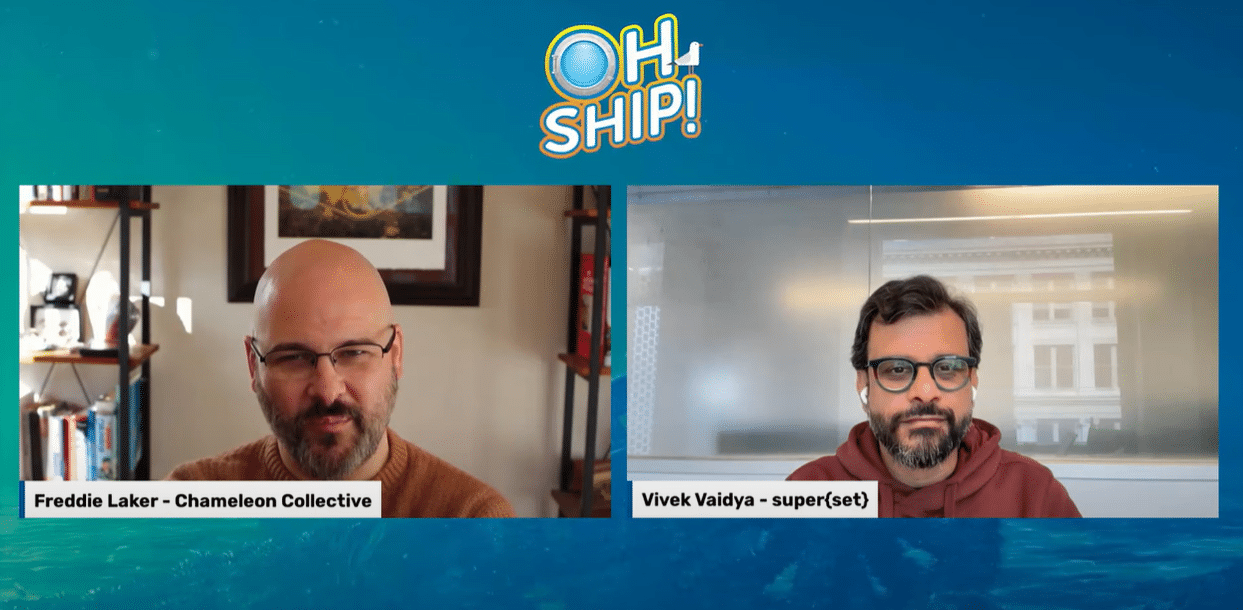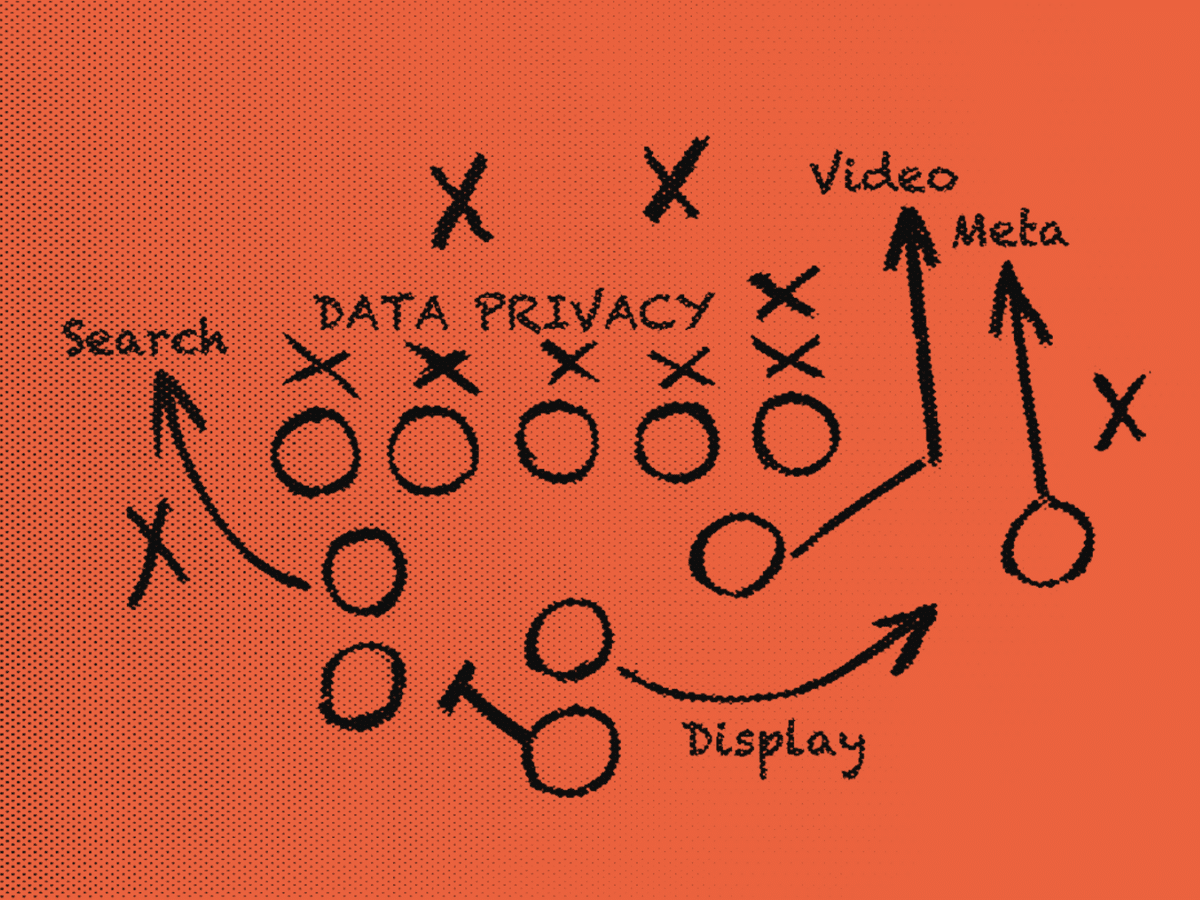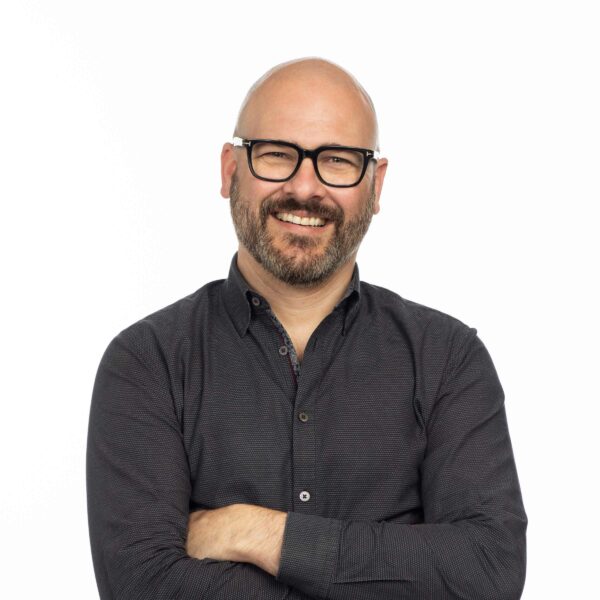Discover one founder’s data-driven strategies for building a powerful startup.
As the world becomes more data-driven and automated (looking at you, GPT), it’s more important than ever to have a strong understanding of data and AI. There’s certainly a learning curve, but businesses large and small are in good company with the help of one startup studio focused on founding and building data-driven software companies. Our recent Oh Ship! Show guest, Vivek Vaidya, is the co-founder and CTO of Super{set}, helping to develop the data-driven landscape without starting from scratch. Vivek shares his insights on how to build businesses in this rapidly changing landscape.
Meet Vivek Vaidya, Co-Founder and CTO of Super{set}
Vivek Vaidya is the co-founder, general partner, and CTO of Super{set}, a startup studio that focuses on founding and building data-driven software companies. He formerly was the CTO of Salesforce Marketing Cloud and the cofounder of Crux, which was sold to Salesforce (also worth noting that this was a Chameleon Collective client at one point). Prior to that, he was the CTO of Rapt, a media monetization software later acquired by Microsoft. He also co-authored the book Data Driven: Harnessing Data and AI to Reinvent Customer Engagement, which was published in 2018.
He’s one of those people who has been sitting at the forefront of technology for a long time, which is why he’s perfect to discuss what it means to build a business in an AI-driven world.
Freddie: Data is a highly technical subject, but is there any humanity to it?
The AI conversation is growing, along with organizations becoming more data-driven. Still, it’s not easy to see where these new developments will take us. For Vivek, that’s part of why the human element is so critical in spurring these conversations and finding new ways to apply these existing tools.
“I think the problems that stem from data-driven software are very interesting. If you look back to when we were building supply chain optimization and pricing optimization software, we start off in the high-tech verticals, companies like Sun, HP, Intel, Apple, etc. Then we pivoted and adopted the technology for media, and so on. Compared to the amount of data we were processing in the late 90s, it’s night and day in terms of scale. The technologies you need to develop to solve the same problems have just exploded over the last 20 years or so. This innovation just keeps happening. For us, application/infrastructure/services we use to solve data-driven problems get more exciting every day.”
Vivek aims to get the data to “speak to him,” even if he doesn’t always know what to look or listen for. “You’re looking for patterns, insights, or answers to questions. Whether you’re a data analyst, data scientist, or software engineer building applications using data, your job is to give people the tools they can use to get answers to these questions. And sometimes you are the user, like as a software engineer building distributed systems. You’re looking at observability data and whether your services are working or what went wrong. There’s a strong human element to every moving part of it.”
Freddie: Having worked with some giant companies, what are some of the most important lessons you’ve learned and can bring to these earlier startup founders?
Working in big technology companies like Salesforce provided Vivek with foundational knowledge and problem-solving that he applies to his startup customers.
“One of the things I’ve come to appreciate is the power of distribution. As technologists, we are quick to get caught up in solving this cool problem using this really wonderful solution we came up with. All of it is for naught if you can’t figure out how to market it and sell it to your customers. That’s one thing we learned at Salesforce in spades. Salesforce has really nailed what we call the Distribution Problem, where we go from discovering customers to creating a whole program to guide them through a funnel and turn them into paying customers.”
Vivek takes big lessons apart to ask smaller questions and find smaller solutions within the startup. For example, starting with a go-to-market aspect, they learn who the customer is, how to sell to that customer, how to figure out what problems they care about, and so on. “Forget the technology. Let’s focus on the problem we’re trying to solve and worry about software later.”
Freddie: With your approach in starting with the customer, how have you had to course correct founders to help them think big picture?
One of the problems many engineering leads face is getting really focused on technology. When this happens, companies become solutions that look for problems. But course correcting their founders is easier at the early stage of the startup — because they can avoid this need altogether.
“We build companies. As a startup studio, we have a fund to make seed investments. If you were to use a VC firm, they’ll write memos to convince the partnership why it’s good to invest in the company. But at Super{set}, we write solutions memos. The solution manual is actually an articulation of the customer, the pain points the customer is facing, and how we might address that pain point through a solution that we would build. What we’re doing is laying out the roadmap for seeding and sequencing: “This is where the company is going to go in here. In stage one, we’re going to do X…” and so on.”
The other benefit of this, according to Vivek, is that as they grow to raise funding, Super{set} is on the board and can be an advisor to them. But since they’ve also been in the trenches with them at the very early stages, there’s established trust there.
“They can reach out to us as operators, ask us to put our builder or co-founder hat on, and work with them through whatever their next objective is. We can engage with them as builders, not just board members.”
Hear the full story on the Oh Ship! Show, episode #103: Listen, Subscribe, and Learn.







